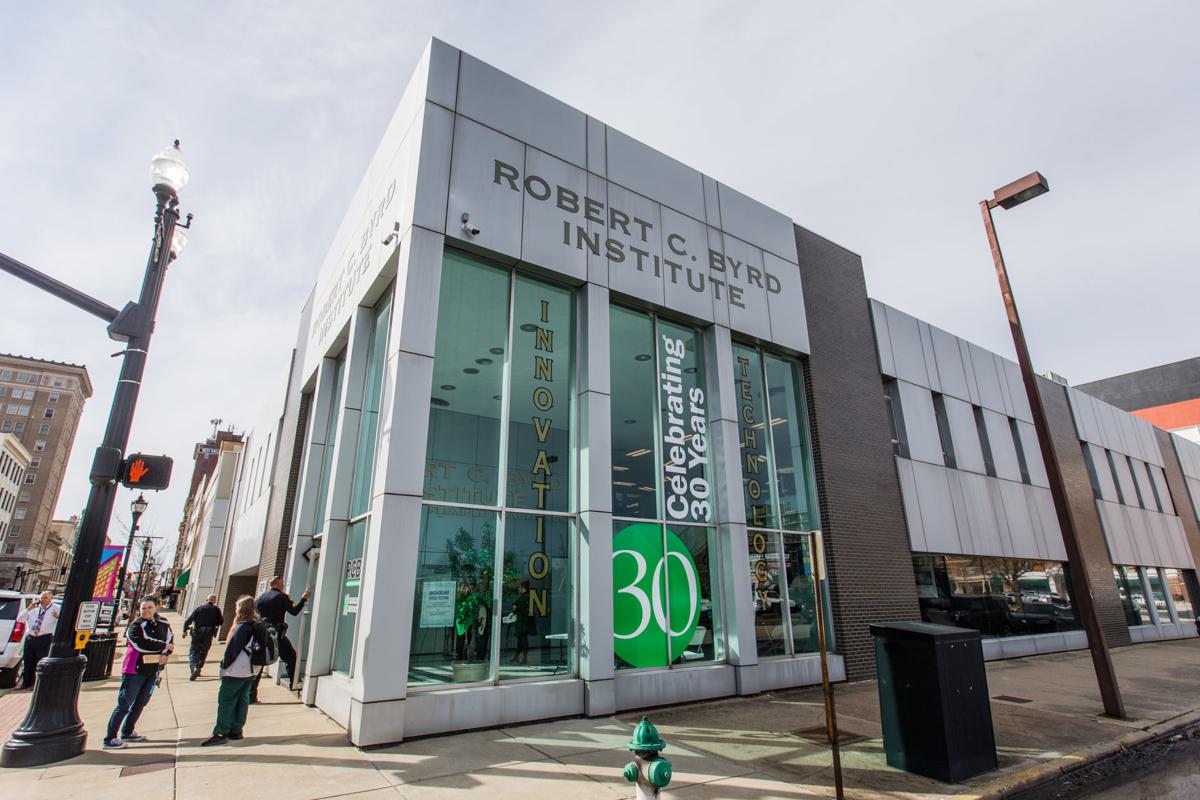MEDIA

Expanding What Is Possible: How RCBI is Transforming Manufacturing

Starting a profitable new business or introducing an innovation is one of the hardest things anyone can do. It’s equally difficult for existing manufacturers who face engineering challenges and expensive high-tech equipment needs that are more than they can manage alone. Without access to technical assistance, many startups and businesses already operating and producing sales cannot reach their full potential.
Brian Alley, President of Carbon Fiber Composites, understands this difficulty. His business has been operating successfully for many years, using advanced composite materials and processes to produce airframe parts for the experimental aircraft industry. However, after partnering with the Robert C. Byrd Institute (RCBI) to manufacture new components, his company is realizing untapped potential. According to Alley, the partnership with RCBI “has made all the difference in the world.”
RCBI was able to offer Alley leased use of advanced manufacturing equipment and the necessary engineering expertise to design and execute production for three new contracts. Using advanced 3D scanning technology and computer-controlled equipment, Alley manufactured airframe parts at RCBI that his operation could not produce on its own. The assistance has allowed Alley to expand his customer base.
"All of the discussions I have had with other companies to bring business to West Virginia have been successful only because I have been able to list RCBI and its resources as an expansion of my capabilities,” Alley said. "Without RCBI, I wouldn't have any of these contracts.”
Capturing value and closing in on revenue that a business otherwise would not have the opportunity to earn is the advantage that RCBI brings to area manufacturers through its technological resources and staff expertise. It has been the evolution of these programs, sparking so many creative partnerships with private industry, that has proved to be one of the absolute bright marks for manufacturing across the region these past several years.
A History of Innovation
The Robert C. Byrd Institute (RCBI) was launched in 1990 as part of an innovative, federally funded project at Marshall University called the “Factory of the Future.” Originally located on Marshall’s Huntington campus, RCBI developed and grew quickly after receiving funding awards through the U.S. Department of Defense. RCBI moved into its current location at 1040 Fourth Avenue in Huntington’s central business district and since has opened additional facilities in South Charleston and Bridgeport.
For more than 30 years, RCBI has been a proven resource for manufacturers and startups, delivering a wide range of innovative services. RCBI’s education and training efforts include nationally recognized two-year certificate and degree programs in Machinist Technology/CNC and Welding Technology offered in conjunction with Mountwest Community & Technical College. Beginning in spring 2022, RCBI will add a certification and degree option in Aviation Maintenance & Technology, a partnership with Mountwest and Marshall.
RCBI also designs and delivers an array of customized training opportunities to upskill company employees in a variety of manufacturing processes and keep up with the latest practices. In addition, RCBI helps manufacturers identify, develop and implement documented quality management standards, such as ISO, to ensure that they remain effective, sought-after and environmentally conscious suppliers. With RCBI’s unique Apprenticeship Works model, it collaborates with partners nationwide to customize and provide industry-endorsed and Department of Labor approved educational opportunities; this initiative ensures that companies’ employees learn skills through on-the-job learning as well as related technical and practical instruction.
Businesses and startups can take full advantage of different, cutting-edge machining techniques and tooling to produce component parts by leasing time on RCBI’s high-tech equipment. Here’s how it works: You provide the raw materials, and your employees operate the equipment while RCBI’s experienced staff is available to provide hands-on assistance as necessary.
.jpg)
If your business plan is to expand your existing equipment lineup, you can lease equipment at RCBI until you have built enough business to justify the purchase. Perhaps you already have invested in new or updated equipment and it’s either not installed yet or your machinists or operators aren’t comfortable using the new technology. RCBI can help you with the transition.
Over the years, RCBI’s efforts have expanded to help fuel innovation in new product development and production across an array of manufacturing businesses.
Innovation and Manufacturing Services
Since its inception, RCBI has helped launch and provided technical assistance to companies across West Virginia and beyond. Area companies such as Frontier Tooling & Design, Wooten Machine and Toyota Motor Manufacturing have used RCBI services to improve their production processes, complete limited production runs, design and refine products, and train employees to operate high-tech equipment and improve manufacturing practices. For companies large and small, RCBI has been a source of knowledge and collaboration to commercialize new products and to create exceptional production efficiencies.
RCBI Huntington offers a variety of the latest technologies, including additive manufacturing with 3D printers for prototyping and small batch runs, which are available for use by individuals and companies. These technologies include cutting-edge resin 3D printers that offer an array of material properties, traditional plastic-based 3D printers, FARO measurement arms for advanced material scanning, computer-controlled laser cutters, mills and lathes, an 88-ton capacity press brake, a wire electrical discharge machine, laser engravers, vacuum forming equipment as well as soldering and vinyl cutting tools. RCBI just added plastic injection molding equipment that can be used with traditionally produced or 3D-printed molds.
The real superstars at RCBI, however, are its experienced technical staff members. RCBI’s team boasts a combined total of 750-plus years of industrial and advanced manufacturing experience. Its staff includes engineers and industry professionals who assist with programming, set-up and operation of RCBI’s advanced equipment, while also providing training on any of the high-tech equipment, giving you and your staff the tools you need to build and create on your own.
Finding Creative Solutions
“In today’s manufacturing, access to technology and expertise is essential,” said Charlotte Weber, RCBI Director & CEO. "Because entrepreneurs face hurdles from prototyping to production, we want to assist them as they attempt and accomplish the extraordinary – from developing innovative ideas to leveraging the advanced technologies and expertise to bring those creative ideas to market."
RCBI provides a unique opportunity for businesses to find creative and cost-effective solutions to production challenges. Tom Laishley, owner of Little Switzerland Water, knows this firsthand. Last year, Little Switzerland Water, whose award-winning canned natural spring water is sourced right here in West Virginia, experienced a production challenge with its can-filling equipment. Due to a faulty foam sensor, which is designed to stop the filling process once a can is full, the machine would cease functioning, halting production and causing delays. Using its Formlabs 3D resin printer, RCBI assisted in the manufacture of a custom replacement part that holds the foam sensor in place. This fix led to a much more reliable production process and has increased production and saved significant machine downtime and maintenance costs.
“I found every member of the RCBI team extremely talented, helpful and truly concerned with solving my manufacturing issue,” Laishley said. “They are a real asset to the community.”
The goal of RCBI is not to replace the area’s existing parts and service providers, rather to help your business capture value, control its own means of production, innovate and create new jobs.
“Whether you are a large manufacturer, small business or innovator working to bring a new product to market, RCBI is a catalyst for growth,” said Derek Scarbro, RCBI Director of Business Development. “We provide assistance to commercialize your ideas, expand operations, improve efficiencies, reach new markets and develop the skilled workforce you need to compete and succeed.”
Launching the Next Big Idea
While this may seem out of reach for anyone not currently working in industry and manufacturing, RCBI’s approach to its innovative services has expanded with the goal of being more inclusive and more accessible to more people. RCBI’s outstanding team of machinists, specialists and design engineers have worked hard to make this happen.
“No matter who you are or where you are trying to go, there is a resource for you here at RCBI,” said Deacon Stone, manager of RCBI’s Center for Innovation. “RCBI is interested in developing a community of individuals – makers, entrepreneurs, seasoned manufacturers and creative individuals – who all draw from one another. We live inside an innovation environment and everyone is welcome.”
With this said, the barriers to bringing new ideas to life are very real. The launch of a new product or innovation often comes with a hefty price tag. Product engineering and design followed by testing and developing a production method is a process that requires the investment of significant capital as well as a tremendous amount of sweat equity. But there are solutions for this. For example, RCBI has a unique project management structure that gives individuals and businesses incredible flexibility to advance their projects and helps manage barriers to entry.
“RCBI wants to turn that high vertical cliff, that giant leap, if you will, into a series of steps or intervals with clear goals and deliverables for our clients,” Stone said.
RCBI’s phased project development approach certainly makes its services more attainable to companies and individual innovators looking to launch new products. The process breaks down projects into easily described steps and deliverables. Fixed pricing, cost commitments and clearly defined project development paths give businesses and innovators all the information they need to make informed decisions about their projects. A three-phased approach is priced and structured so clients know up front the commitment of costs along with the outline of steps for product development. Using this phased approach, businesses and innovators alike can begin the process of commercializing their innovations with confidence that their ideas have merit and market potential.

Funding Your Project
The costs associated with launching a new product or innovation can seem out of reach for many small businesses, startups and entrepreneurs. This is where RCBI’s early-stage funding initiative comes in. RCBI works with local, state and federal partners to provide project support for new product development and technical assistance. RCBI’s Appalachian Hatchery and EDA University Center programs, for instance, have provided businesses and startups with funding opportunities for years. Any small business or entrepreneur is eligible to receive as much as $10,000 worth of RCBI services to support a qualifying project. Funding fluctuates, but anyone interested in exploring such opportunities should apply at www.rcbi.org/go/esfo.
Whether you are a seasoned business owner or budding entrepreneur, you may encounter setbacks and challenges in bringing your ideas to life. RCBI is here to help you overcome challenges and create opportunities to help you and your business thrive.
For more information on how you can use RCBI’s services or apply for early-stage funding, contact Adam Phillips, Business Development Specialist for Huntington Area Development Council and Outreach Specialist for RCBI’s Appalachian Hatchery, by email at aphillips@hadco.org or phone (304) 525-1161.
